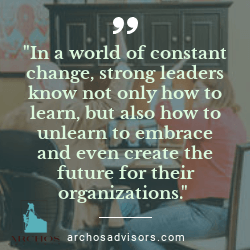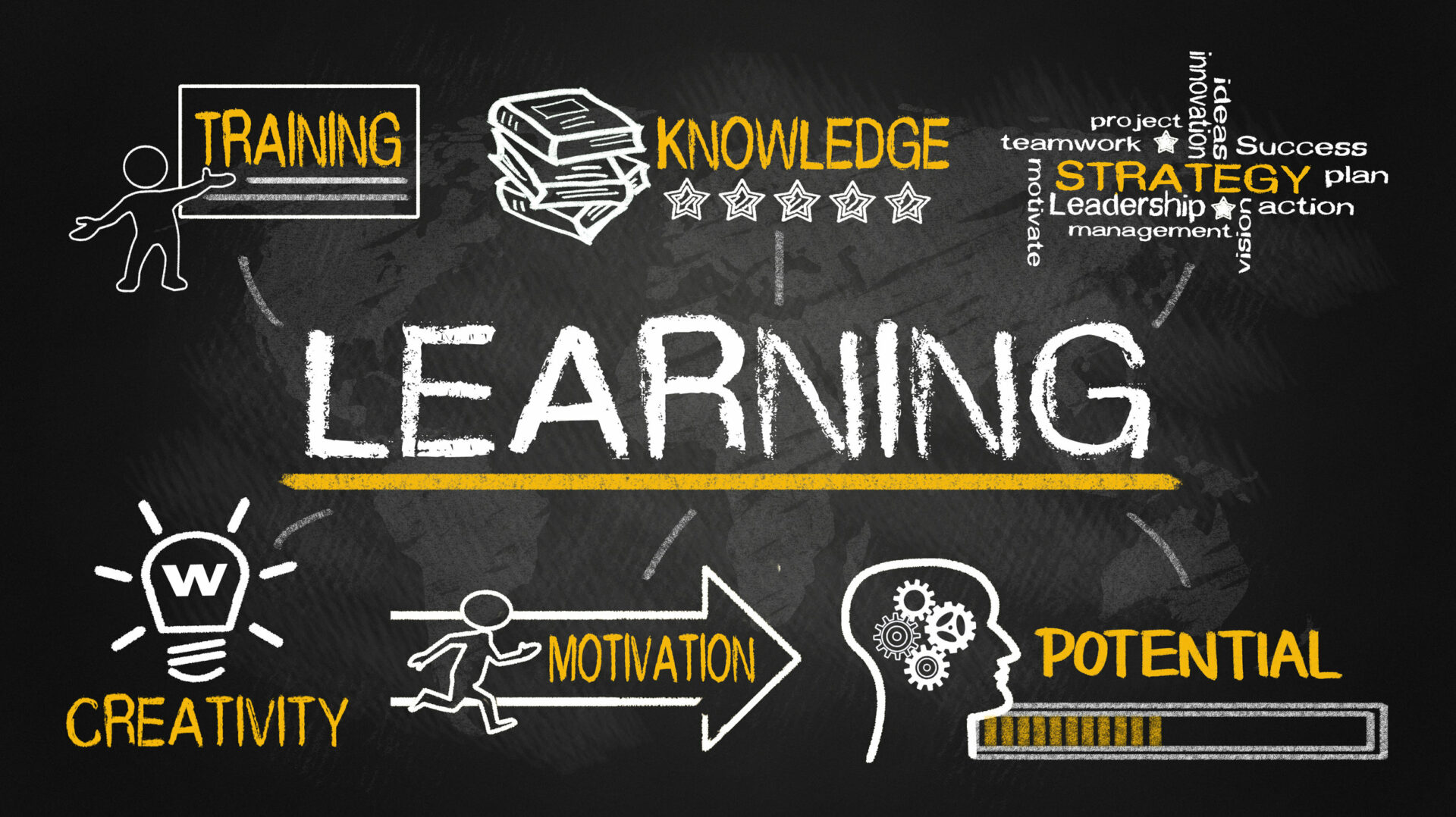
Much has been written about the power of lifelong learning. Most successful professionals know how important it is to continually “sharpen the saw,”1 or stay current in knowledge, skills, and abilities to effectively perform and deliver results. If you look at great leaders, they are typically infinite learners. However, if you take a closer look, you might see that they also have the ability to unlearn.
The ability to unlearn is a lesser-known concept that’s rarely spoken about; however, it is a critical component to success. As professionals grow both as individuals and within their careers, they are shaped by their background, experiences, and beliefs. Over time, while this collective wisdom is beneficial, it can also be inhibiting. If we get too attached to specific ways of thinking or processing, or if we begin to make assumptions, we may become blind to opportunity, or apply concepts to current situations that are not the most effective. The best leaders in a dynamic marketplace are able to “unlearn,” or not be constrained by the past, and are open to making space for new or potentially different ideas, models, or approaches.
Challenging assumptions, or even “unlearning” them, can be difficult and often requires gaining perspective through others. However, the benefits can provide a remarkable opportunity. Leaders with the ability to unlearn often spark innovation. They are disrupters, serial entrepreneurs, and/or catalysts for growth within their organizations. They do not shy away from new experiences, “what if” questions”, journeys with no map, or starting new ventures with a blank piece of paper.
In a world of constant change, strong leaders know not only how to learn, but also how to unlearn to embrace and even create the future for their organizations. In a 2017 interview, Barry Diller (previous Chairman and CEO of Paramount Pictures, Fox Broadcasting, and now IAC, a leading media, and internet company comprised of some of the world’s most recognized brands and products) spoke of this concept. In several of his roles over the course of his career, he has been able to achieve some remarkable innovations and breakthroughs, including introducing the “movie of the week” to ABC, developing the TV miniseries, building a “4th and alternative network” (FOX), and growing internet platforms for direct interactivity and community with consumers (e.g., including Match.com and Expedia).2 He attributes his own success to being able to “unlearn to learn, and learn to unlearn”, and continuing that cycle in whatever role, opportunity, or challenge he faces.

Consider your own learning agility. How open are you to learning, and how proactive are you at pursuing new knowledge and skills? How effectively do you unlearn, challenge assumptions or that which is “sacred”, or resist the pull of automatically applying concepts that have always worked for you? Answering these questions can help you be more alert to your tendencies, both learning and unlearning. Successful leadership requires both!
1 Source: Seven Habits of Highly Effective People, by Stephen Covey
2 Source: Masters of Scale podcast with Reid Hoffman, Session #15, The Infinite Learner (Part 2) – with IAC’s Barry Diller. December 12, 2017.
